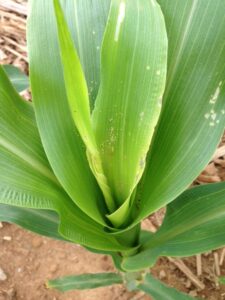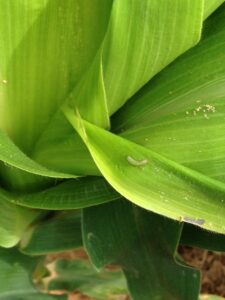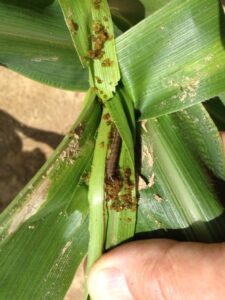Extended periods of long, hot dry weather can cause pumpkin fruit to seemingly mature quicker (i.e., turn orange). Sunscald injury occurs when cucurbit fruit are suddenly exposed to direct sunlight during the latter stages of fruit ripening during the fall. Sunscald injury often occurs after plants prematurely defoliate due to powdery mildew or downy mildew infection or when vines collapse due to Phytophthora blight or bacterial wilt.
Symptoms of sunscald injury include the collapsing of rind tissue on the side of the fruit which is in direct afternoon sunlight. Sunscald injury often develops as a pinkish-red color on exposed fruit which becomes flat in appearance. Over time fruit tissue may become tan to brown and secondary pathogens often invade the sunscald injured areas of the fruit.
To help reduce the potential for sunscald injury on pumpkin and other winter squash fruit, maintain weekly protectant fungicide programs to help retain foliage for as long as necessary, especially if fruit are going to be left in the field for long periods.



